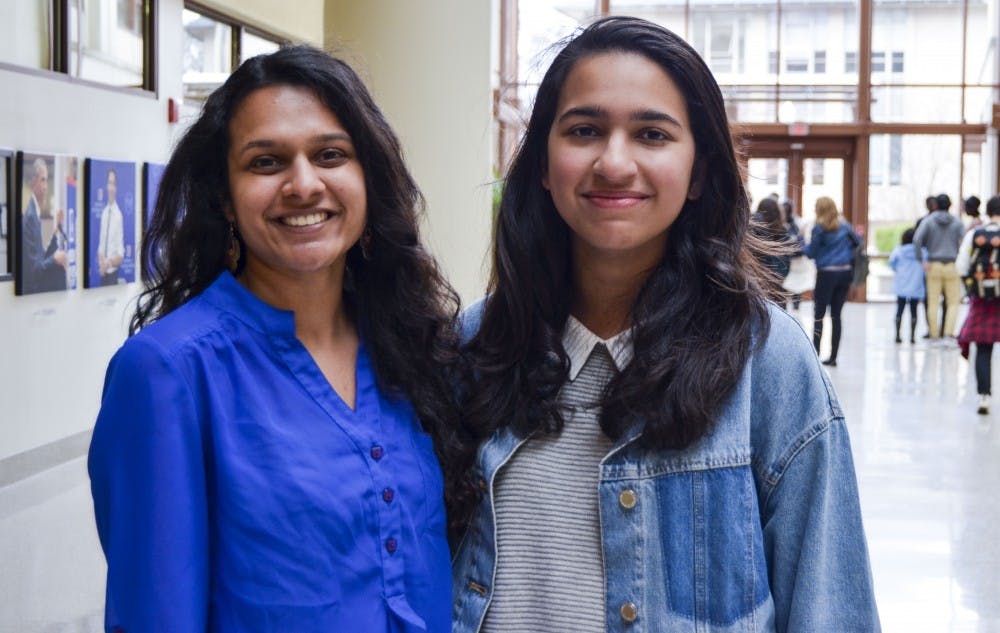Administrators in the School of International Service are speaking out in defense of the school’s offerings for students interested in studying South Asia after students complained to The Eagle last spring about their struggles to complete a South Asia regional focus at AU.
The April article featured the stories of frustrated students who struggled to pursue the regional focus, partly due to a lack of course offerings at AU. The International Studies program at AU requires nine credit hours for a regional focus and 18 for a thematic focus, The Eagle previously reported.
Students have seven options to choose from when pursuing a regional focus: Sub-Saharan Africa, Europe and Eurasia, Middle East and North Africa, Western Hemisphere (Latin America and the Caribbean), East Asia and the Pacific, and South and Central Asia, according to the SIS website. SIS majors must take three courses regarding their selected region, with at least one being a 300-level course. The school listed four course offerings for the South and Central Asia focus last spring.
Patrick Jackson, who served as SIS’s associate dean for curriculum and learning until this fall, said the first reason behind the lack of regional classes for South Asia is because SIS faculty voted to organize the curriculum more thematically than regionally in the fall of 2012.
“The reason we organized it this way is because we don’t have enough capacity in house to offer, to have the regional study requirement of three courses in region per student,” Jackson said in a May interview. “Think about the sheer number of seats that we would actually have to be providing.”
Jackson added that class space is “tight enough” and that it’s a “big balancing act of trying to put the whole thing together.”
Rhea Kapadia, a student featured in the April article who graduated from AU in May, said she switched her regional focus after years of trying to pursue the South Asia focus.
“My understanding is that when you move up in international relations, and you get a master’s, you get one in a thematic area more often than a regional area,” Kapadia said in a recent interview. “But that still doesn’t really explain why the Western Hemisphere [regional focus] has 18 courses and South and Central Asia only have four.”
Rosemary Shinko, the assistant dean for undergraduate education for SIS, said the process behind fulfilling a regional requirement is simple. If the student believes that a course that falls outside of SIS would apply to their regional focus, the student can email her the course’s name, number and syllabus to complete the process.
“It’s a relatively painless process that’s already been organized for them,” Shinko said in a May interview. “If they’re worried or concerned, they can meet with me directly and I can even reach out to a professor and see how much of their content might focus on South Asia.”
Additionally, Shinko said she pulls “out all the stops” in order to see students complete their four-year degree.
Jackson said that study abroad is a major part of pursuing a regional focus, as students complete most of their regional focus credits outside of AU. One of the reasons countries like Pakistan aren’t represented in AU’s course offerings, he said, is because there are places in Pakistan where it’s no longer safe to send students, according to the State Department.
In the April article, senior Fatima Tariq said that reaching out to professors at Georgetown University or George Washington University could be a way to solve the small amount of classes on Pakistan or other countries.
“If the State Department has certain rules, that’s OK, but how does that take away AU’s chance to offer a class in AU about our country?” Tariq said in a recent interview.
Jackson said SIS is looking into hiring a regional focus coordinator, but conversations were on hold due to the interim dean. The University recently named Christine BN Chin as the permanent dean for the school in May, and she began her term June 1.
In an August email, Jackson wrote that the discussions were occurring before his term as associate dean ended, but nothing was “definitively decided.” Shinko said in August that the possibility of hiring a regional focus coordinator is still being considered.
“Part of the problem with the notion of a regional coordinator is, do you have one for each region, or one overall?” Jackson said. “How do you ensure that the one person who is doing all the regions is going to be fair to all the regions in terms of development efforts?”
Jackson stressed that SIS is dedicated to studying South Asia, calling it “an important region.”
“It is something that we are committed to having and allowing students to specialize to the extent we can, with the classes we offer, which is not very much,” Jackson said. “But we are working with the rest of the University and AU Abroad to make sure those opportunities exist for students.”





